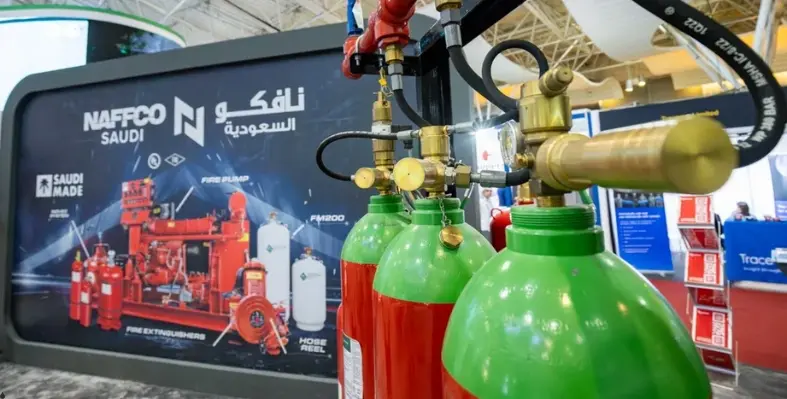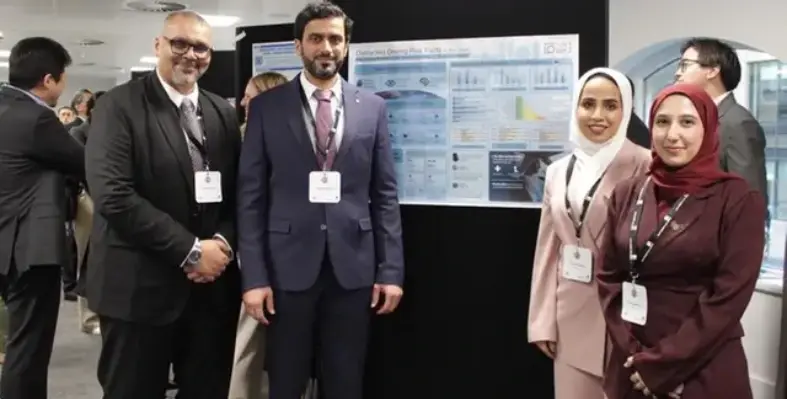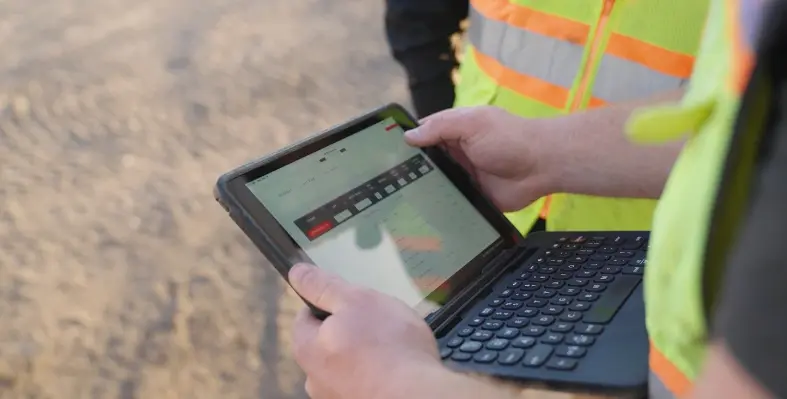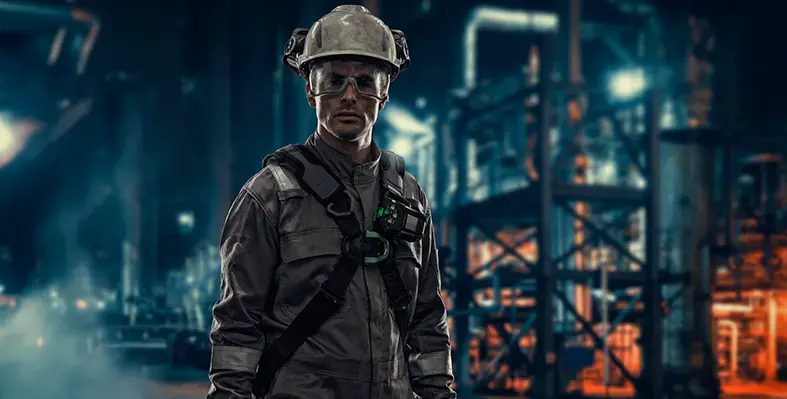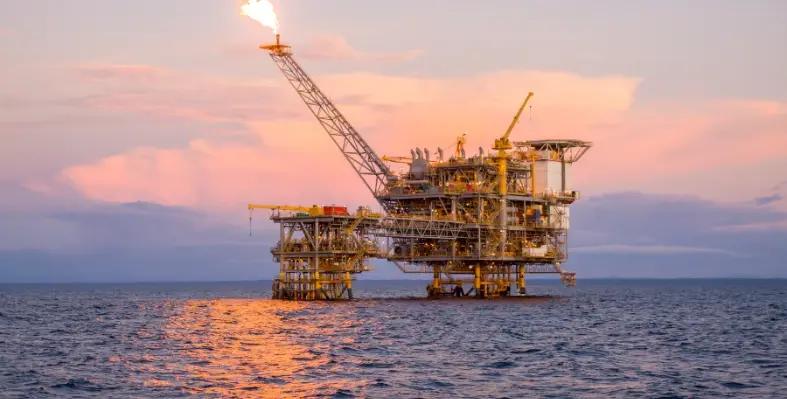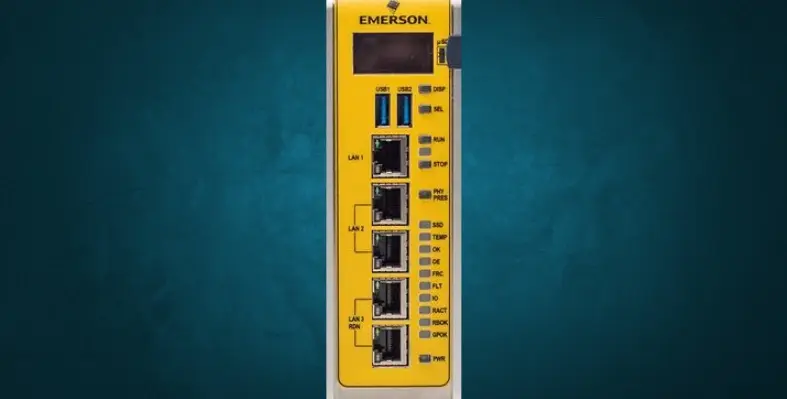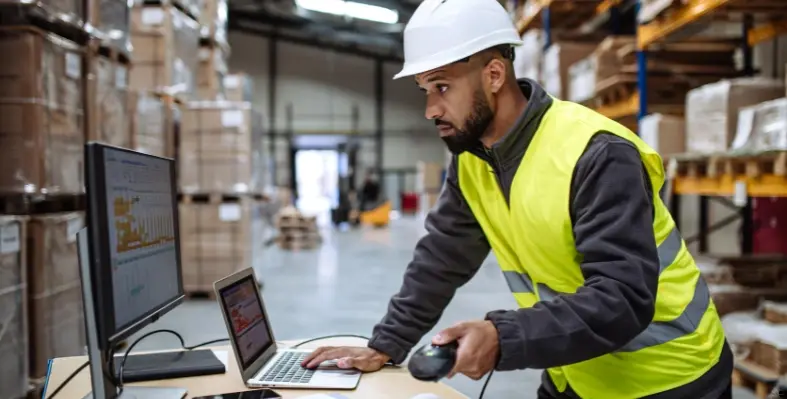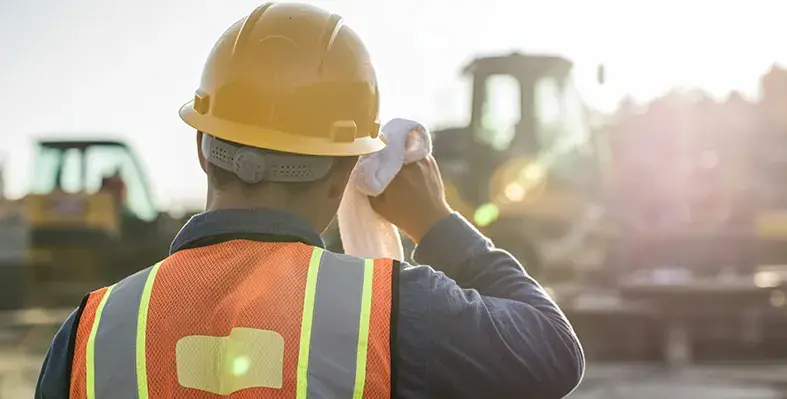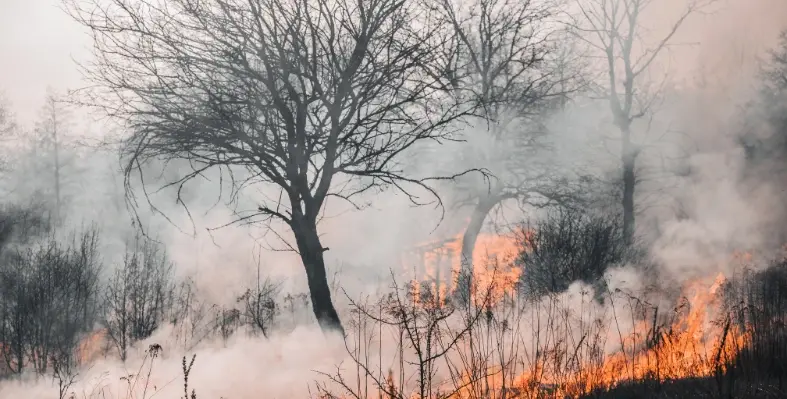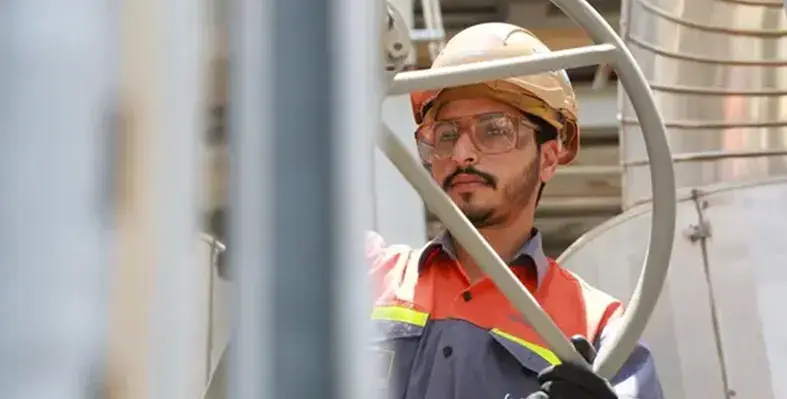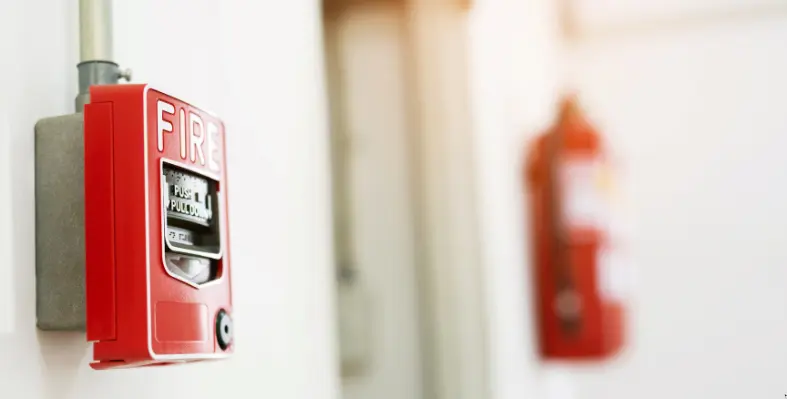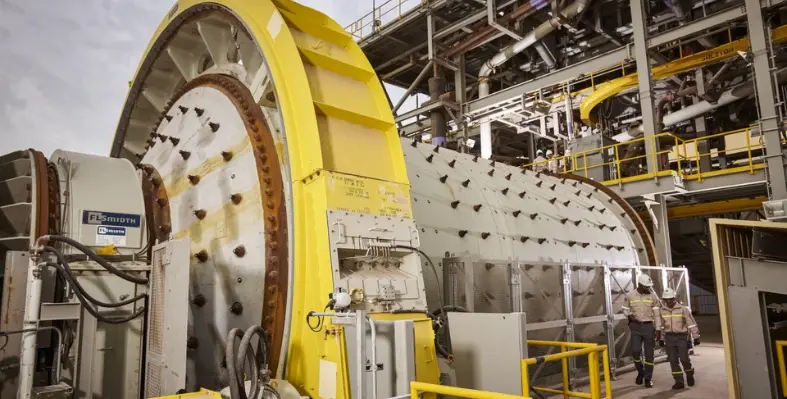Industrial Insights
Industrial Insights
- Details
- Sania Aziz
- Industrial Insights
- Date: 17 September, 2025
- Year: 2025
Fire safety in airports, among the most complex and high-stakes environments in the built world, will be a focal point at the Fire Protection and Technology Summit during Intersec Saudi Arabia. The event, scheduled from 29 September to 1 October at the Riyadh International Convention and Exhibition Center (RICEC), will gather global experts to address the latest innovations and challenges in fire protection.
The summit will open with a session led by representatives from King Fahd International Airport (KFIA), one of Saudi Arabia’s busiest hubs, which handled more than 12mn passengers in 2024. Senior Manager for Fire Prevention, Eng. Hussein Mohammed Rajab, alongside his colleague Mohamed, will present strategies designed to protect both airside and landside operations. Their discussion will emphasise how systematic fire prevention measures not only mitigate risk but also safeguard operational continuity and reduce the heavy costs associated with emergencies.
From a landside perspective, KFIA has invested in passive fire protection, advanced suppression systems for retail areas, and comprehensive evacuation planning. Airside, the focus is on the deployment of foam deluge systems, high-reliability detection technologies, and rapid-response firefighting units, ensuring readiness for incidents in highly sensitive zones.
The session will also address the importance of integrating international fire codes with local regulatory requirements. By blending global best practices with the realities of Saudi operations, airports can achieve what speakers describe as “hybrid compliance,” offering both safety assurance and adherence to regulatory frameworks while accounting for the unique risks posed by individual facilities.
Expanding the discussion beyond aviation, the summit will showcase expertise from leading fire safety professionals worldwide. Terrance Tsang, Chief Fire Officer of the Hong Kong Fire Services Department, will deliver a keynote on raising fire safety standards in super high-rise buildings under construction—an area of growing relevance in the Kingdom’s rapidly urbanising landscape. Meanwhile, Abdullah Abdulrahman Alrommani, Assistant Director of Quality and Safety Management at SASCO, will share insights on strengthening fire protection across fuel stations, a critical component of national infrastructure.
The second day of the summit will be led by the National Fire Protection Association (NFPA), a key driver of global fire and life safety standards. The NFPA programme will demonstrate how international codes can be adapted to support Saudi Arabia’s Vision 2030, particularly in ensuring resilient infrastructure and safer communities.
Intersec Saudi Arabia will also feature the Future Security Summit, powered by ASIS International Dhahran Chapter. This segment will bring discussions on emerging global threats, crisis response strategies, critical infrastructure protection, responsible AI integration in security, and the importance of diversity in building robust security frameworks.
By convening leaders from aviation, construction, and critical infrastructure, Intersec Saudi Arabia underscores its role as a platform for knowledge exchange and innovation. With airports like KFIA setting the standard for fire prevention and emergency readiness, the summit promises to highlight how proactive safety measures can help meet the Kingdom’s growth ambitions while protecting lives and assets.
- Details
- Sania Aziz
- Industrial Insights
- Date: 16 September, 2025
- Year: 2025
The Integrated Transport Centre (ITC), part of Abu Dhabi’s Department of Municipalities and Transport, has taken part in the 20th International Conference on Road Safety on Five Continents (RS5C), held recently in Leeds, United Kingdom.
Organised by the Swedish National Road and Transport Research Institute (VTI), RS5C gathered international experts, policymakers and researchers to discuss the latest developments in road safety and mobility. The event served as a platform to share knowledge, present cutting-edge research, and explore innovative solutions for safer and more sustainable transport systems.
The ITC delegation presented a research paper titled “Risk Analysis of Distracted Driving Behaviour: A Case Study of the Emirate of Abu Dhabi” during the scientific poster session on the opening day. The paper sparked engaging discussions with global specialists, highlighting the risks of driver distraction and offering evidence-based insights into strategies for reducing accidents in Abu Dhabi. The exchange of ideas provided an opportunity for ITC to learn from international best practices while showcasing the emirate’s progress in advancing road safety research.
Throughout the conference, ITC representatives explored new methodologies for assessing safety strategies, modelling accident risks, and integrating multiple data sources into road safety planning. Sessions also examined how machine learning can help understand the interaction between drivers, vehicles and the surrounding environment. Advanced analytics for classifying urban roads and monitoring key risk indicators were also a focus, demonstrating the potential of data-driven approaches to make mobility systems safer.
The delegation’s participation aligns with Abu Dhabi’s long-term goal of Vision Zero, which aims to eliminate road fatalities through continuous innovation and investment in sustainable mobility. By presenting original research and engaging in global knowledge exchange, ITC underscored the emirate’s commitment to adopting modern technologies and practices that reduce risks for road users.
The event reaffirmed Abu Dhabi’s position as a regional leader in road safety and mobility innovation. By engaging with leading institutions and experts on a global stage, ITC is contributing to the development of more resilient and forward-looking transport systems, supporting the emirate’s ambition to be recognised as a global benchmark in safe and sustainable mobility.
Eng. Abdulla Hamad Al Eryani, Acting Executive Director of the Planning and Strategic Affairs Sector at the Integrated Transport Centre, said, “ITC’s involvement in this international forum reflects Abu Dhabi’s commitment to employing the latest global practices in road safety. By harnessing technology, leveraging data and analysis, and strengthening collaboration with international partners, we aim to build a safer and more sustainable mobility system that supports the Emirate’s long-term aspirations.”
- Details
- Sania Aziz
- Industrial Insights
- Date: 15 September, 2025
- Year: 2025
ACCIONA has unveiled Atlas, an innovative digital platform designed to make construction projects significantly safer while also enhancing efficiency and sustainability. The system is part of the company’s commitment to driving smarter and more resilient infrastructure in line with regional development and sustainability goals.
At the core of Atlas is a suite of real-time monitoring and control tools that help reduce risks on construction sites. Key safety features include continuous air quality monitoring to detect harmful emissions, emergency alert systems that allow for immediate response to incidents, video surveillance to ensure safer working environments, and worker location tracking to improve evacuation procedures and prevent accidents in restricted areas.
Beyond direct safety measures, Atlas supports safer project delivery by integrating tunnel boring machine data, geotechnical monitoring, concrete traceability, and earthwork production tracking. These functions allow for earlier detection of potential hazards and ensure that quality standards are consistently met. By consolidating these capabilities into one platform, project managers gain greater visibility and control, reducing the likelihood of accidents while ensuring compliance with strict safety regulations.
The platform is modular and scalable, meaning it can be tailored to the specific needs of projects ranging from tunnels and railways to ports, highways, and buildings. In addition to safety, Atlas incorporates environmental monitoring tools that align with sustainability agendas such as Saudi Arabia’s Vision 2030 and the UAE Net Zero 2050 strategy. These features help track environmental impact, manage inventories and maintenance digitally, and ensure safer and more sustainable operations.
Atlas has already proven its value in international projects. In the United States, it is deployed on the Fargo-Moorhead Flood Diversion project, where it supports decarbonisation efforts alongside operational safety. In Brazil’s São Paulo Metro Line 6, Atlas enhances tunnel boring machine and instrumentation monitoring, while in Chile and Poland it has been applied to optimise asset tracking and strengthen safety systems in complex projects.
By introducing Atlas to the Middle East, ACCIONA aims to accelerate the region’s digital transformation in construction while raising the bar for workplace safety. The platform offers project owners and contractors the tools to create safer working environments, improve incident response, and deliver infrastructure that is not only efficient and sustainable but also built with worker safety at its core.
- Details
- Sania Aziz
- Industrial Insights
- Date: 4 September, 2025
- Year: 2025
In high-risk industries, safety is the foundation of productivity, quality, and trust. Yet too often it is reduced to a compliance exercise.
For safety managers and site leaders, the opportunity is to shift this mindset.
By treating safety as a core value, not just a legal duty, leaders can build trust, boost morale, and empower teams to take ownership of their protection.
Beyond compliance
Regulations are the baseline, but when safety becomes a tick-box task, engagement suffers.
PPE and protocols risk being seen as burdens rather than lifesaving tools.
True safety leadership reframes protection as a personal investment in people’s wellbeing.
PPE as a leadership choice
Every decision signals priorities, and few are more visible than PPE.
Choosing protection that is comfortable, high-performing, and easy to use shows commitment to people, not paperwork.
Workers are more likely to embrace equipment that’s designed with them in mind.
Building trust together
Involving employees in PPE trials and feedback builds trust and ensures equipment works in real conditions.
When leaders model safe behaviour, engage teams, and close the feedback loop, safety becomes embedded in daily culture.
The result can be higher morale, fewer incidents, and a reputation for valuing worker wellbeing.
Lead with protection, not just policy, and safety will follow. At MSA, we design PPE that fits, functions, and protects without compromise.
Ready to elevate your safety standards? Try our Head and Fall Protection ranges for free.
This article was written by MSA Safety.
- Details
- Sania Aziz
- Industrial Insights
- Date: 12 September, 2025
- Year: 2025
AkzoNobel’s protective coatings brand, International, has unveiled its epoxy passive fire protection (PFP) system, Chartek ONE, to a global audience at GasTech 2025, following its successful Middle East debut last year.
Chartek ONE is designed as a single-coat, mesh-free solution that simplifies application while delivering comprehensive protection for energy sector assets. By streamlining installation, the product boosts efficiency, improves workplace safety, and provides robust defence against a wide range of fire scenarios. It offers up to three hours of resistance to jet and pool fires, withstands cryogenic and hydrocarbon fire exposure, and delivers strong corrosion protection across varied operating temperatures.
Sustainability has been embedded in its design. Chartek ONE is formulated with 100% solids, free from boron and chlorinated plasticisers, lowering both occupational risks and environmental impact. Its mesh-free technology eliminates the need for reinforcement in jet and pool fire scenarios, reducing installation time, labour, and material costs while cutting down overall system weight, an important factor in weight-sensitive industries such as offshore oil and gas.
The system has demonstrated significant efficiency gains, with installation time in workshops reduced by up to 59%, offering tangible cost savings throughout a project’s lifecycle. Certified to meet leading international standards, including NORSOK M-501 Revision 7, ISO 21843, ISO 22899, and UL1709 Edition 5, Chartek ONE has also undergone rigorous real-world testing. Trials included exposure to jet fires, weathered beam performance, and termination detailing, areas where PFP systems often fail. By exceeding minimum testing benchmarks, the coating offers proven reliability beyond the laboratory.
AkzoNobel’s commitment to sustainability is reinforced by its top-tier rankings in global ESG indices such as Sustainalytics and EcoVadis, placing it among the leading one per cent of companies worldwide. This focus on reducing environmental impact throughout development adds to customer confidence in Chartek ONE’s durability, safety, and eco-performance.
Now available to customers across Europe, Chartek ONE joins AkzoNobel’s established portfolio of coatings trusted in some of the world’s harshest operating environments.
- Details
- Sania Aziz
- Industrial Insights
- Date: 11 September, 2025
- Year: 2025
Emerson has announced the new PACSystems RX3i CPS400 Safety Controller, designed to enable Safety Integrity Level 2 (SIL2) strategies for infrastructure, fire and gas, burner management systems, and other emergency shutdown systems.
The PACSystems Safety Controller is a compact, high-performance solution with robust security measures and a scalable architecture with 2,000 available I/O points, ideal for complex projects with evolving requirements.
As project automation becomes more sophisticated and data-driven, OEMs and systems integrators need a range of more powerful hardware and software products to ensure compliance with standards and regulations for protecting workers, whether onboard a single piece of equipment or distributed across a larger process.
With a large 64-megabyte memory capacity and scalable digital architecture, the PACSystems Safety Controller supports a wide range of mission-critical applications.
Using built-in industrial communications protocols, including OPC UA, Ethernet Global Data (EGD), and Modbus TCP, the RX3i CPS400 controller is ready for peer-to-peer connections and integration with higher-level hosts, providing complete operational visibility.
As a secure-by-design solution incorporating Secure Boot and Trusted Platform Module (TPM) standards, the controller delivers strong data integrity and protection against potential threats.
Safety-certified function blocks and pre-configured templates simplify system certification in accordance with the IEC 61511 standard.
Available in simplex or redundant configurations, the RX3i CPS400 controller can perform all safety data messaging with duplex communications using the black channel principle over EGD, enabling standardized and reliable connectivity with Emerson’s PACSystems VersaMax SafetyNet I/O system.
The platform is IEC 61508 safety-certified, providing a capable SIL2 solution to help designers build appropriate protection schemes.
Developers can configure the controller using familiar software tools employed for programmable logic controllers (PLC), operator interfaces, and other automation elements through Emerson’s PAC Machine Edition development environment.
This unified tool chain with a user-friendly interface streamlines development efforts, allowing users to create integrated automation, visualisation, and safety solutions for rapid startups and maximum operating efficiency.
“Adding the PACSystems RX3i CPS400 Safety Controller to our extensive portfolio of safety products, we continue to deliver tools users need to create compliant safety systems that are easily developed and integrated into sophisticated automation solutions,” said Daniel Smith, senior product manager with Emerson’s discrete automation business.
- Details
- Sania Aziz
- Industrial Insights
- Date: 10 September, 2025
- Year: 2025
3E, a global leader in regulatory compliance and workplace safety solutions, has announced that its AI assistant within the 3E Insight chemical regulatory compliance platform has been recognised as New Product of the Year in the EHS Software category.
The award highlights 3E’s ongoing focus on innovation and excellence.
The AI assistant simplifies complex regulatory landscapes and supports proactive compliance strategies.
Embedded in the 3E Insight platform, it leverages proprietary data and advanced generative AI to provide precise, real-time answers to regulatory queries, interpret technical language, and connect users to critical chemical data.
Serving industries including chemicals, manufacturing, consumer products, pharmaceuticals, and retail, the assistant is a valuable tool for EHS and regulatory compliance professionals, product stewards, R&D scientists, and supply chain managers.
It helps users save time, reduce risk, and make informed decisions throughout the product lifecycle, reinforcing 3E’s position as a market-leading AI solution for product compliance.
"At 3E, our mission is to be the most trusted provider of compliance and sustainability intelligence for the global economy," said JP O’Sullivan, COO of 3E. "Our innovation is now fulfilling that mission via a new class of expert-led, trustworthy AI-powered solutions purpose-built to advance product compliance and workplace safety workflows. We will continue to innovate market-leading, expert-led AI solutions for product compliance."
- Details
- Sania Aziz
- Industrial Insights
- Date: 9 September, 2025
- Year: 2025
The global construction worker safety market is forecast to expand significantly over the next decade, with its value projected to rise from US$3.5bn in 2025 to US$7bn by 2035, according to research by Future Market Insights.
This represents a compound annual growth rate (CAGR) of 7.0%, driven by regulatory enforcement, rising safety awareness, and the adoption of advanced protective technologies.
Personal protective equipment (PPE) will remain the cornerstone of the industry, accounting for more than 40% of total demand in 2025. Helmets, gloves, high-visibility clothing, safety footwear and fall protection gear continue to be indispensable on construction sites. Bulk procurement by major contractors and mandatory compliance with occupational safety laws are expected to sustain this segment’s dominance over the forecast period.
At the same time, technology is reshaping the market. Smart PPE — which integrates sensors, connectivity, and data analytics into protective gear — is emerging as the fastest-growing segment, commanding nearly 39% of the technology share in 2025. These devices enable real-time hazard detection, biometric monitoring, and geolocation tracking, helping prevent accidents and reduce downtime on high-risk projects. Their adoption is expected to accelerate as costs fall and miniaturisation improves, making advanced safety equipment more accessible across both developed and emerging markets.
The market’s expansion can be divided into two distinct phases. From 2025 to 2030, growth will be driven primarily by rising adoption volumes, as more companies equip workers with standardised protective equipment to comply with stricter safety regulations. In the following five years, between 2030 and 2035, growth will increasingly be fuelled by higher-value products, including connected wearables and premium safety solutions that command higher prices.
Major drivers of this trend include rapid infrastructure development, urbanisation, and the global push to reduce occupational injuries. Employers are also placing worker safety at the centre of environmental, social, and governance (ESG) strategies, aligning investment in safety solutions with broader corporate responsibility goals.
Industry analysts highlight growing opportunities in smart wearables, integrated safety management platforms, and workforce training programmes. Digital tools such as real-time monitoring systems, predictive analytics, and IoT-enabled helmets are becoming integral to modern construction practices, supporting proactive risk mitigation and improved emergency response.
However, challenges remain. Supply chain constraints for specialised equipment, regulatory compliance requirements, and technical integration issues — such as ensuring device reliability under harsh site conditions — could slow adoption in some markets. Buyers are increasingly favouring suppliers that can provide not only certified equipment but also training, reliable logistics, and post-sale support.
Leading global players include Honeywell, 3M, Ansell, Delta Plus Group, Drägerwerk, DuPont, and MSA Safety, all of which are investing heavily in product innovation and ergonomic design. Their strategies emphasise durability, comfort, and compatibility with digital monitoring systems to encourage consistent use by workers.
With construction activity intensifying worldwide and safety frameworks evolving, the outlook for the sector is strong. As one of the report’s key findings notes, the integration of traditional PPE with smart, connected technologies is expected to define the next phase of growth, ensuring that worker protection keeps pace with the scale and complexity of global construction projects.
- Details
- Sania Aziz
- Industrial Insights
- Date: 8 September, 2025
- Year: 2025
Cal/OSHA is urging employers across California to take urgent action to protect workers from unhealthy air conditions as multiple wildfires continue to spread across the state.
Fires including the TCU September Lightning Complex in Tuolumne, Calaveras, and Stanislaus counties, the Salt 14‑2 Fire and Garnet Fire in Fresno County, and the Gifford Fire in San Luis Obispo and Santa Barbara counties are generating smoke that affects large regions, posing hazardous conditions for outdoor workers.
For up-to-date information on wildfire incidents, employers and workers can visit CAL FIRE’s Incident Page.
Under Cal/OSHA’s Protection from Wildfire Smoke standard, employers are required to shield workers from harmful air quality caused by wildfire smoke.
This includes monitoring air quality, adjusting work practices when necessary, and providing N-95 respirators for voluntary use.
The standard also mandates specific training to ensure employees understand the risks and how to protect themselves.
Employers must actively monitor the Air Quality Index (AQI) for PM2.5 at worksites when wildfire smoke may impact the area.
If the AQI exceeds 150, respirators must be made available to all workers, and their use encouraged. When levels exceed 500, respirator use becomes mandatory.
Air quality can be tracked via the U.S. EPA’s AirNow website, local air quality management districts, or through employer-owned monitoring instruments that comply with Cal/OSHA requirements.
Cal/OSHA also emphasises that workers cannot face retaliation for refusing to work under unsafe conditions, including in evacuation zones. Employers must respect workers’ rights to refuse dangerous work and ensure their safety in accordance with state regulations.
Additional guidance on safety in wildfire smoke and evacuation zones can be found in Cal/OSHA’s fact sheet “Worker Safety Wildfire Smoke and Evacuation Zones.”
By following these measures, employers can help protect workers from the harmful effects of wildfire smoke while maintaining compliance with state safety standards.
- Details
- Sania Aziz
- Industrial Insights
- Date: 5 September, 2025
- Year: 2025
Aluminium Bahrain B.S.C. (Alba) has reached a new milestone in its safety journey, recording 39 million safe working hours without a lost-time injury (LTI) as of 3 September 2025.
This achievement reflects the strong commitment of Alba’s employees and contractors to maintaining a safety-first culture across all operations.
Alba continues to embed safety at the heart of its operations through ongoing training, transparent practices, and active workforce engagement. By aligning operational excellence with employee well-being, the company reinforces its reputation as a global industry leader. Producing more than 1.62 million metric tonnes per annum (mtpa) in 2024, Alba is one of the world’s largest aluminium smelters with over 50 years of excellence in safety, environmental responsibility, and community development.
“This achievement is a result of the collective vigilance, responsibility, and dedication of our employees and contractors,” said Ali Al Baqali, Alba’s CEO. “Every safe hour is a testament to our shared mindset — that safety is not just a policy, but a way of life.”
Alba’s certifications include ISO 9001 (quality), ISO 14001 (environment), ISO 27001 (information security), ISO 45001 (occupational health and safety), and ISO 18788 (security operations management). The company also holds certifications such as IATF 16949 (automotive quality), ISO 22301 (business continuity management), ASI Performance and Chain of Custody Standards, and has earned a Platinum sustainability rating from EcoVadis, ranking it in the top 1% globally.
Driving sustainability in Bahrain and beyond
Alba has been at the forefront of Bahrain’s aluminium industry since its inception as the Middle East’s first smelter. Today, it remains central to the Kingdom’s downstream aluminium sector and a major contributor to GDP diversification. Alba employs a workforce that is 87% Bahraini and invests extensively in training and development, underlining its commitment to national talent development.
Recognised for its ESG efforts, Alba launched a comprehensive roadmap in 2022 built around six key areas: decarbonisation, green energy and aluminium, circular economy and secondary aluminium, employee welfare, collaboration and partnerships, and transparency and due diligence. Among its flagship projects are the US$37.5mn Spent Pot Lining Treatment Plant, the PS5 Block 4 power station expansion, and a +6MW solar farm project. Collectively, these initiatives align Alba with Bahrain’s Net Zero Carbon Targets by 2060.
Safety first, safety always
Guided by its motto, “Safety First, Safety Always,” Alba remains dedicated to protecting the well-being of its people. The achievement of 39 million safe working hours without LTI is a testament to this philosophy and to the continuous engagement of employees and contractors in safety programmes.
Alba’s excellence in health and safety has been recognised globally. The company has earned the RoSPA Lifetime President and President Awards (10+ Gold Medal Awards), the British Safety Council’s International Safety Award with Merit and 4-Star Audit Rating, and multiple honours from the National Safety Council (NSC).
- Details
- Sania Aziz
- Industrial Insights
- Date: 4 September, 2025
- Year: 2025
KiddeFenwal has reaffirmed its commitment to innovation and safety following the first anniversary of its independence as a standalone business.
Since July 2024, the global fire suppression and safety controls specialist has accelerated investment in future-ready solutions designed to meet eco-friendly standards while addressing emerging risks.
A core focus has been the development of environmentally responsible technologies. Among these is the company’s NATURA™ Inert Gas System, an alternative to chemical-based agents that extinguishes fires by reducing oxygen levels to halt combustion. With zero ozone depletion potential and zero global warming potential, the system exemplifies KiddeFenwal’s push towards sustainable fire safety.
The company is also tackling the challenges posed by the rising use of lithium-ion batteries across sectors, particularly in battery energy storage systems (BESS). To mitigate associated risks, KiddeFenwal has introduced a comprehensive solution covering anomaly detection, fire detection, control, notification, and suppression, tailored specifically for lithium-ion applications.
These innovations highlight KiddeFenwal’s position at the forefront of industry disruption and safety leadership. CEO Rekha Agrawal, who joined in November 2024, has been instrumental in driving this transformation. Her strategy has focused on leveraging the company’s independence by streamlining processes, removing legacy obstacles, and enhancing agility to better respond to customer needs and evolving industry standards.
With its renewed direction, KiddeFenwal is positioning itself not only to meet today’s demands but also to shape the future of fire safety through sustainable, cutting-edge solutions.
“Agility is a core value at KiddeFenwal and reflects our commitment to moving quickly, with an eye focused on the industry’s future, without compromising quality or discipline,” said Agrawal. “We are grateful to be positioned to point the way forward.”
KiddeFenwal provides fire suppression and safety control solutions for industrial and commercial sectors. Backed by more than a century of expertise and strengthened by the agility of operating as an independent company, KiddeFenwal delivers advanced technologies designed to safeguard lives, businesses, critical infrastructure, and even irreplaceable cultural treasures. Its portfolio of trusted brands — Kidde Fire Systems, Kidde Fire Protection, and Fenwal Controls — supports diverse industries including energy, manufacturing, marine, infrastructure, and OEM applications. From its headquarters in Ashland, Massachusetts, KiddeFenwal continues to expand its footprint worldwide, with a strong and growing presence across North America, South America, Europe, the Middle East, and Asia-Pacific.
- Details
- Sania Aziz
- Industrial Insights
- Date: 3 September, 2025
- Year: 2025
Emirates Global Aluminium (EGA), the UAE’s largest industrial company outside oil and gas and the world’s biggest producer of “premium aluminium,” has announced the successful completion of a debottlenecking expansion at its Al Taweelah alumina refinery, achieving the milestone with zero lost time injuries.
The project added a third ball mill at the refinery, increasing operational resilience and unlocking up to 50,000 tonnes of additional alumina production annually. Ball mills play a critical role in grinding bauxite ore into fine particles for chemical processing into alumina, a vital raw material for aluminium production.
EGA highlighted that the expansion was completed entirely by in-house teams, covering engineering design, project management, construction, and commissioning. During the construction phase, more than 650,000 hours of work were delivered without a single lost time injury, underscoring EGA’s strong commitment to workplace safety and its wider health, safety, and environment (HSE) standards.
Since its start-up in 2019, Al Taweelah alumina refinery has consistently operated above its nameplate capacity of two million tonnes of alumina per year. In 2024, the refinery supplied 49% of EGA’s total alumina requirements.
EGA said the latest expansion not only strengthens operational reliability but also demonstrates how safety and production excellence go hand in hand, ensuring growth while protecting the workforce.
Abdulnasser Bin Kalban, chief executive officer of Emirates Global Aluminium, said, “This expansion is a key step forward for Al Taweelah alumina refinery, unlocking additional production capacity as we reorient our bauxite supply chain beyond Guinea. It further strengthens our operational resilience and unlocks capacity growth. I thank every member of the team who contributed to this success.”
